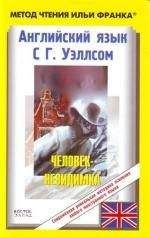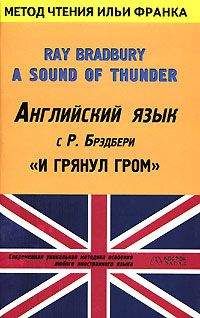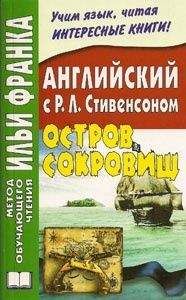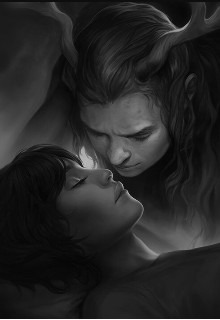Майкл Муркок - Английский язык с М. Муркоком
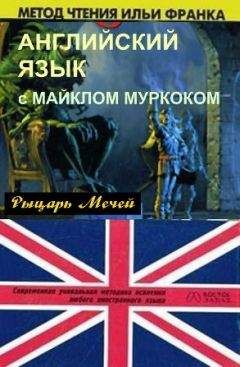
Помощь проекту
Английский язык с М. Муркоком читать книгу онлайн
sword [sɔ:d] oceans [ˈəuʃnz] crimson [ˈkrɪmzn] haunted [ˈhɔ:ntɪd] sacrifice [ˈsækrɪfaɪs]
In those days there were oceans of light and cities in the skies and wild flying beasts of bronze. There were herds of crimson cattle that roared and were taller than castles. There were shrill, viridian things that haunted bleak rivers. It was a time of gods, manifesting themselves upon our world in all her aspects; a time of giants who walked on water; of mindless sprites and misshapen creatures who could be summoned by an ill-considered thought but driven away only on pain of some fearful sacrifice; of magics, phantasms, unstable nature, impossible events, insane paradoxes, dreams come true, dreams gone awry, of nightmares assuming reality.
It was a rich time and a dark time (это было богатое /событиями/ и темное время). The time of the Sword Rulers (время Повелителей Мечей; ruler — правитель, государь). The time when the Vadhagh and the Nhadragh (время, когда /народы/ вадаги и надраги), age-old enemies, were dying (давние враги, погибали; age-old — старый, вековой). The time when Man, the slave of fear (время, когда Человек, раб страха), was emerging (/только/ появлялся /на свет/; to emerge — возникать, появляться), unaware that much of the terror he experienced (не подозревая, что большая часть страха, /который/ он ощущал; to experience — испытывать, переживать) was the result of nothing else but the fact (была результатом ничего иного, как того обстоятельства; fact — обстоятельство, событие) that he, himself, had come into existence (что он сам появился на свет; to come — приходить, прибывать; появляться; existence — существование, бытие, жизнь). It was one of many ironies connected with Man (это был один из множества парадоксов, связанных с Человеком; irony — ирония, парадокс) (who, in those days, called his race `Mabden' (который в те дни называл свою расу «мабдены»)).
The Mabden lived brief lives (мабдены жили недолго: «короткие жизни») and bred prodigiously (и плодились очень быстро; to breed — размножаться, вскармливать; prodigiously — удивительно, чрезмерно). Within a few centuries (за несколько столетий; within — в пределах, не позднее) they rose to dominate the westerly continent (они смогли заполонить западный континент; to rise to — быть в состоянии, справиться; to rise-rose-risen; to dominate — господствовать, преобладать) on which they had evolved (на котором появились; to evolve — развиваться, эволюционировать). Superstition stopped them from sending many of their ships (суеверие удерживало их от того, чтобы послать: «от посылания» многие свои корабли; to send — посылать, отправлять; to send-sent-sent) towards Vadhagh and Nhadragh lands for another century or two (в земли вадагов и надрагов еще столетие или два; towards — к, по направлению), but gradually they gained courage (но постепенно они набрались храбрости; to gain — добывать, получать; набираться) when no resistance was offered (когда никакое сопротивление было оказано = не встречая сопротивления; to offer — предлагать, оказывать). They began to feel jealous of the older races (они начали чувствовать зависть к более старшим = древним расам; to begin-began-begun); they began to feel malicious (начали строить злые планы; to feel — чувствовать, ощущать, осязать; to feel-felt-felt; malicious — злобный, злонамеренный).
unaware [ʌnəˈweə] existence [ɪɡˈzɪstns] prodigiously [prəˈdɪʤəslɪ] jealous [ˈʤeləs]
It was a rich time and a dark time. The time of the Sword Rulers. The time when the Vadhagh and the Nhadragh, age-old enemies, were dying. The time when Man, the slave of fear, was emerging, unaware that much of the terror he experienced was the result of nothing else but the fact that he, himself, had come into existence. It was one of many ironies connected with Man (who, in those days, called his race `Mabden').
The Mabden lived brief lives and bred prodigiously. Within a few centuries they rose to dominate the westerly continent on which they had evolved. Superstition stopped them from sending many of their ships towards Vadhagh and Nhadragh lands for another century or two, but gradually they gained courage when no resistance was offered. They began to feel jealous of the older races; they began to feel malicious.
The Vadhagh and the Nhadragh were not aware of this (вадаги и надраги не подозревали об этом; to be aware of — осознавать, отдавать себе отчет в чем-то). They had dwelt a million or more years upon the planet (они жили миллион или более лет на этой планете; to dwell — жить, обитать) which now, at last, seemed at rest (которая теперь, наконец, казалось, /находилась/ в состоянии покоя; rest — покой, отдых, сон). They knew of the Mabden (они знали о мабденах; to know-knew-known) but considered them not greatly different from other beasts (но считали их не сильно отличающимися от других животных; greatly — очень, значительно). Though continuing to indulge their traditional hatreds of one another (хотя и продолжая питать традиционную ненависть друг к другу; though — несмотря на, хотя; to indulge — потакать, давать себе волю; hatred — ненависть, отвращение), the Vadhagh and the Nhadragh spent their long hours (проводили /свои/ целые часы: «долгие часы»; to spend — тратить, проводить; to spend-spent-spent) in considering abstractions (в рассмотрении абстракций = занимаясь абстрактными исследованиями; to consider — рассматривать/ся/, считать/ся/), in the creation of works of art and the like (в создании = создавая произведения искусства и других подобных /занятиях/). Rational, sophisticated (разумные, утонченные; sophisticated — изощренный, лишенный простоты), at one with themselves (/живущие/ в гармонии с самими собой; at one — в согласии, заодно), these older races were unable to believe in the changes that had come (эти древние расы были неспособны поверить в перемены, которые произошли; to come — приходить, становиться, происходить). Thus (таким образом), as it almost always is (как это почти всегда бывает), they ignored the signs (они не заметили признаки /этих перемен/; to ignore — не учесть, не обращать внимания; sign — знак, символ, примета; знамение).
There was no exchange of knowledge (не было обмена знаниями) between the two ancient enemies (между двумя давними врагами; ancient — древний, старинный), even though they had fought their last battle many centuries before (хотя они провели последнюю битву много веков назад; even though — несмотря на то, даже если; to fight — сражаться, бороться; to fight-fought-fought).
hatred [ˈheɪtrɪd] rational [ˈræʃənl] ancient [ˈeɪnʃnt] centuries [ˈsenʧərɪz]
The Vadhagh and the Nhadragh were not aware of this. They had dwelt a million or more years upon the planet which now, at last, seemed at rest. They knew of the Mabden but considered them not greatly different from other beasts. Though continuing to indulge their traditional hatreds of one another, the Vadhagh and the Nhadragh spent their long hours in considering abstractions, in the creation of works of art and the like. Rational, sophisticated, at one with themselves, these older races were unable to believe in the changes that had come. Thus, as it almost always is, they ignored the signs.
There was no exchange of knowledge between the two ancient enemies, even though they had fought their last battle many centuries before.
The Vadhagh lived in family groups (вадаги жили родовыми группами; family — родовой, семейный) occupying isolated castles (занимая обособленные замки; to occupy — занимать, заселять; isolated — отдельно стоящий, изолированный) scattered across a continent (разбросанные по континенту; to scatter — разбрасывать, рассеивать; across — поперек, сквозь) called by them Bro-an-Vadhagh (называемому ими Бро-ан-Вадаг). There was scarcely any communication between these families (едва ли было какое-либо общение между этими семьями = семьи почти не общались; communication — общение, связь, контакт), for the Vadhagh had long since lost the impulse to travel (так как вадаги давным-давно утратили интерес к путешествиям; long since — давно, исстари; to lose — терять, утрачивать; to lose-lost-lost; impulse — толчок, позыв). The Nhadragh lived in their cities (надраги жили в своих городах) built on the islands in the areas to the north west of Bro-an-Vadhagh (построенных на островах в областях, /лежащих/ к северо-западу от Бро-ан-Вадага; to build-built-built; areas — край, область, зона). They, also, had little contact (они также имели маленькую связь = мало общались), even with their closest kin (даже со своими ближайшими родственниками; kin — родня, родственники). Both races reckoned themselves invulnerable (обе расы считали себя неуязвимыми). Both were wrong (обе ошибались; to be wrong — быть неправым, ошибаться).
